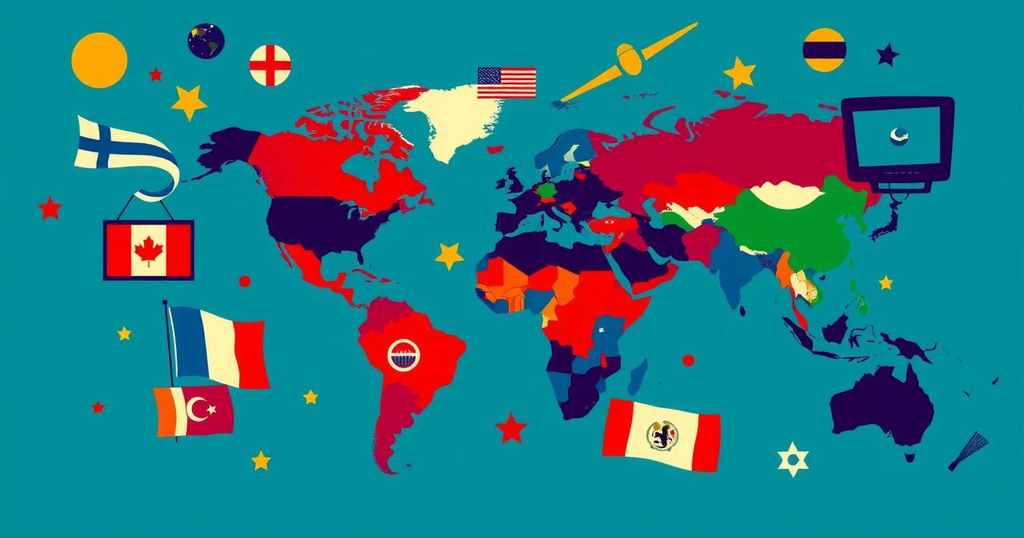Analysis of Trump Administration’s Cuts to US-Funded Media and Global Impact

President Trump has enacted budget cuts totaling nearly $1 billion to the U.S. Agency for Global Media, which threatens the presence of U.S.-funded international journalism. Experts warn that countries like China and Russia will likely fill this media void with biased narratives, while U.S.-based platforms historically provided diverse and critical coverage, including crucial reporting from regions often overlooked by mainstream media.
Former President Donald Trump has implemented an executive order reducing the budget of the U.S. Agency for Global Media, eliminating nearly $1 billion in funding for global media efforts. This decision has led to the immediate layoff of numerous journalists and has raised concerns about how this vacuum could be filled by adversarial nations.
Lisa Curtis, a former National Security Council member and current chair of Radio Free Europe/Radio Liberty, expressed that such cuts will unwittingly benefit adversaries like China, Russia, and Iran, which are actively deploying significant resources to disseminate anti-American propaganda. She has raised legal challenges regarding the authority of these funding cuts, pointing out that this funding was allocated by Congress.
China has effectively utilized its media outlets to promote its narrative, offering necessary resources to localities, unlike U.S. platforms such as Voice of America (VOA). Furthermore, Russia has ramped up its media presence through government-operated channels, intensifying its outreach to regions that are unaccustomed to Western news coverage.
The BBC has also curtailed some of its international services, allowing Russian media to occupy frequencies previously used for programs in Arabic. Sarah Cook, a prominent researcher, indicates that if China were to assume the role of media provider in developing nations, it would lead to a different and possibly biased form of journalism, as it favors government narratives.
Former Trump appointee Kari Lake disparaged the U.S. Agency for Global Media as a drain on taxpayer resources, arguing that government-funded media lacks relevance in an age dominated by private news sources. However, U.S. broadcasters have historically offered diverse programming in various languages, fulfilling needs unmet by mainstream outlets.
Curtis highlighted the impact of Radio Free Farda in Iran, which connects with 10% of the adult population weekly, providing critical reporting that includes original coverage indeed absent from larger media outlets. Mareike Ohlberg stated that China has aggressively expanded its media reach, especially since the 2008 economic crisis, capitalizing on weaknesses in Western media and presenting its perspective as the alternative narrative.
In light of President Trump’s recent cuts to the U.S. Agency for Global Media, there is an increasing risk that adversarial nations such as China and Russia will exploit this gap in global media outreach. Experts have warned that the unique journalistic contributions of U.S. platforms could be replaced by biased narratives, limiting the diversity of information available to populations in developing countries. The consequences of these cuts may significantly alter the global media landscape, making it imperative to consider the long-term implications of such funding reductions.
Original Source: m.economictimes.com








